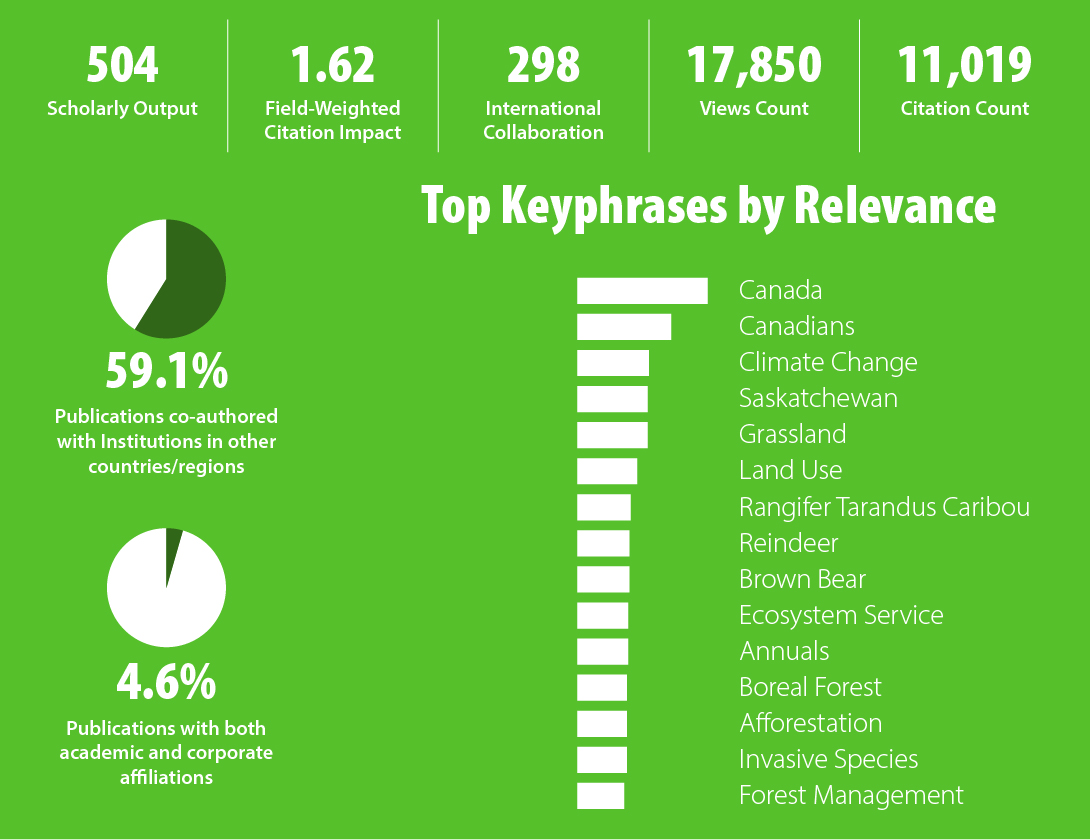Key Facts
Coming Soon!
News
USask researchers discover swath of previously undocumented polar bear dens
USask researchers part of discovery of three extinct walnuts in Arctic
USask researchers use foxes to solve health mystery in Northern communities
Camelids help USask researchers explore reproductive health mysteries in mammals
Tsunami on the plains: USask researchers find sea waves once swept Prairie Provinces
Institutional Stewardship Initiatives
Community Gardens
USask has a number of community gardens located around its main campus designed to offer food security solutions and opportunities for staff and students to interact with the earth in a personal, meaningful way.
Marquis Culinary Centre
Marquis Culinary Centre is home to many sustainability initiatives designed to reduce its impact on the land.
Local and Sustainable Ingredients
MCC purchases seasonal foods from local producers, as close to USask as possible, to reduce their environmental impact, provide fresh ingredients, and to strengthen Saskatchewan’s and Canada’s economies.
Waste Reduction
Sustainability is an essential part of Culinary Services. Through their day-to-day operations, Marquis Culinary Centre is continually finding solutions to reduce waste and use alternative techniques to lessen our environmental footprint, including:- Tray-less dining
- Biodegradable take-out containers, catering trays, and cutlery
- Straw-free dining
- Discounts on coffee for reusable mug users
- Donation of surplus food to social support centres and programs within the community as well as being a FoodRenew Partner.
- Fryer oil recycling
- A well-trained team of staff to operate in the most sustainable ways available to their position.
Meewasin Valley Authority Memorandum of Understanding
On September 22, 2023, Meewasin and the University of Saskatchewan signed a Memorandum of Understanding. The document aims to facilitate intentional, strategic collaboration with innovative and creative problem solving to take on common challenges and opportunities. The agreement highlights opportunities for joint development of student experiences, business and infrastructure planning, research, community outreach and marketing, in addition to many other focused project collaborations.Research Institutes, Centres, & Projects
Coming Soon!
Research Impact

Sample Courses
Our world has at least 15 million species, all of which have adapted to particular environments and lifestyles and use energy to grow and reproduce. We examine these processes in representative organisms from all the major groups, and discuss factors influencing changes in biodiversity over time and space.
A graduate level course designed to introduce students in an integrative manner to the field of biodiversity conservation and how to apply its principles to best promote sustainability. Understanding biodiversity and its management requires an interdisciplinary approach with particular reference to mechanisms of change and human impacts on the environment. This course will be interdisciplinary in its approach.
Designed for students in the College of Agriculture and Bioresources. It considers the nature of ecosystems and of processes associated with energy flow and material cycling within them. Particular attention is given to ecosystems of Western Canada and the effect that man exerts on them, especially through agricultural practices.
Provides an understanding of the sources, use, and interpretation of environmental data used in resource management. Basic modeling principles are covered and selected environmental models are used to illustrate the use of data in resource management and to provide skills in assessment of the interactions between resource management and the environment.
For a full listing of related courses, please visit the Office of Sustainability's sustainablity course inventory.
Key STARS Reporting Areas
- OP-9: Landscape Management
- OP-10: Biodiversity
- OP-14: Office Paper Purchasing
- OP-18: Waste Minimization and Diversion
- OP-19: Construction and Demolition Waste Diversion
- OP-20: Hazardous Waste Management
- IN-20: Grounds Certification
- IN-29: Pest Management Certification
- IN-29: Pest Management Certification
